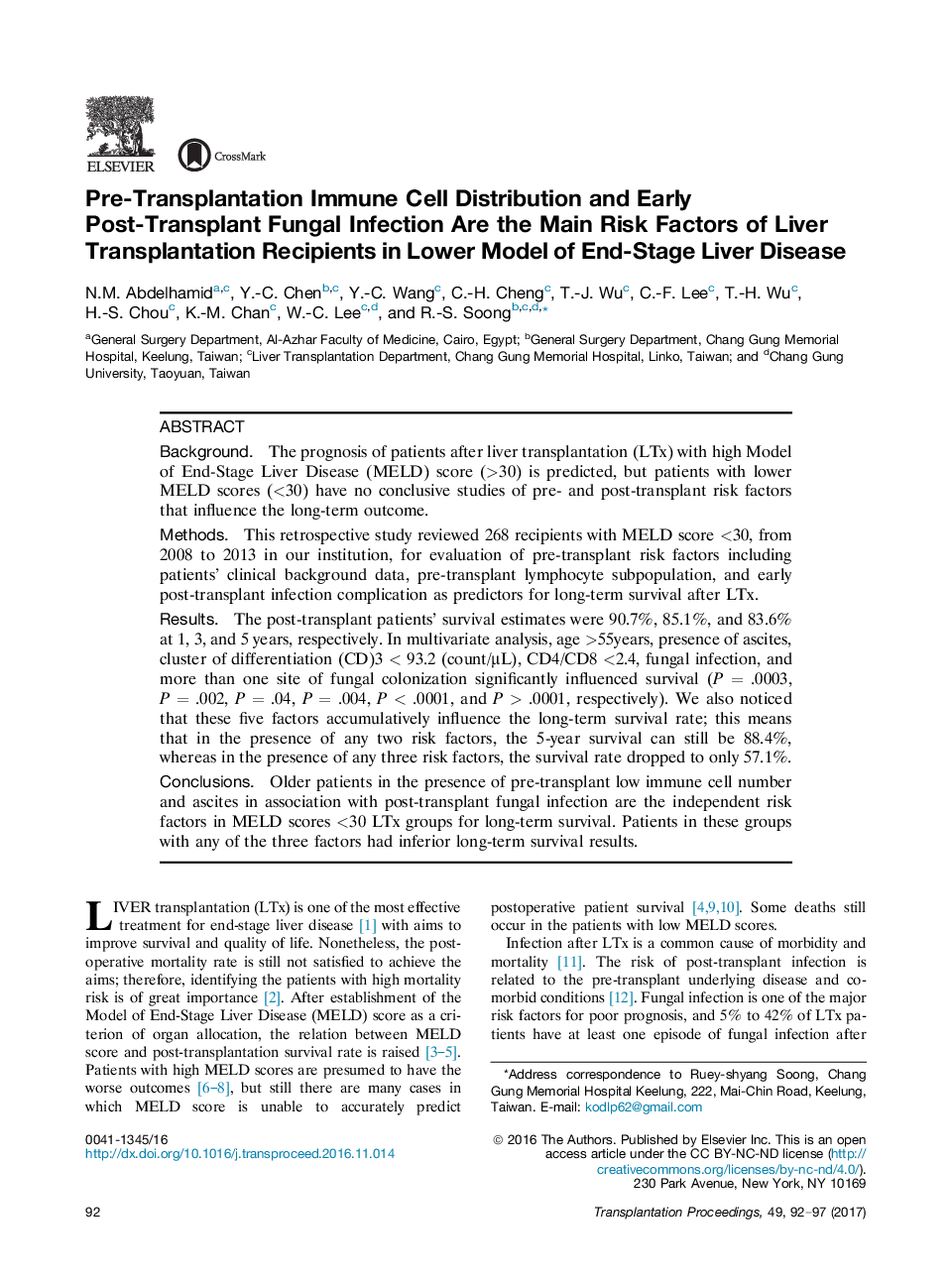| Article ID | Journal | Published Year | Pages | File Type |
|---|---|---|---|---|
| 5729296 | Transplantation Proceedings | 2017 | 6 Pages |
BackgroundThe prognosis of patients after liver transplantation (LTx) with high Model of End-Stage Liver Disease (MELD) score (>30) is predicted, but patients with lower MELD scores (<30) have no conclusive studies of pre- and post-transplant risk factors that influence the long-term outcome.MethodsThis retrospective study reviewed 268 recipients with MELD score <30, from 2008 to 2013 in our institution, for evaluation of pre-transplant risk factors including patients' clinical background data, pre-transplant lymphocyte subpopulation, and early post-transplant infection complication as predictors for long-term survival after LTx.ResultsThe post-transplant patients' survival estimates were 90.7%, 85.1%, and 83.6% at 1, 3, and 5 years, respectively. In multivariate analysis, age >55years, presence of ascites, cluster of differentiation (CD)3 < 93.2 (count/μL), CD4/CD8 <2.4, fungal infection, and more than one site of fungal colonization significantly influenced survival (P = .0003, P = .002, P = .04, P = .004, P < .0001, and P > .0001, respectively). We also noticed that these five factors accumulatively influence the long-term survival rate; this means that in the presence of any two risk factors, the 5-year survival can still be 88.4%, whereas in the presence of any three risk factors, the survival rate dropped to only 57.1%.ConclusionsOlder patients in the presence of pre-transplant low immune cell number and ascites in association with post-transplant fungal infection are the independent risk factors in MELD scores <30 LTx groups for long-term survival. Patients in these groups with any of the three factors had inferior long-term survival results.
